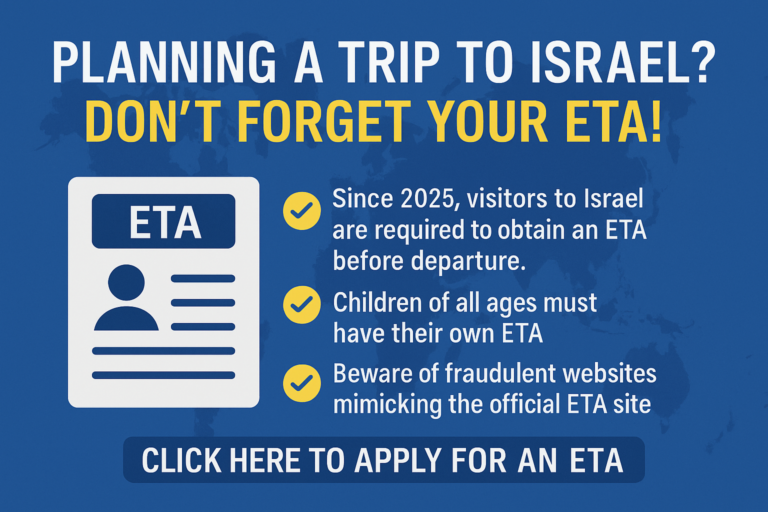 On December 9, 2010, Internal Revenue Service Commissioner, Douglas Shulman, announced that the IRS is considering another formal “voluntary disclosure” program for U.S. taxpayers who own, or have an interest in, a foreign bank account. As YWN recently reported, the foreign bank account contagion is in the process of spreading to jurisdictions beyond Switzerland, including Israel. As a result, individuals with foreign bank accounts in jurisdictions beyond Switzerland who have not yet disclosed their foreign bank accounts to the IRS, may consider doing so, particularly if a new formal program is implemented. Shulman warned , however, that taxpayers who come forward should not expect to receive “deals” similar to those obtained by taxpayers who came in under the voluntary disclosure program that ended in October 2009.
On December 9, 2010, Internal Revenue Service Commissioner, Douglas Shulman, announced that the IRS is considering another formal “voluntary disclosure” program for U.S. taxpayers who own, or have an interest in, a foreign bank account. As YWN recently reported, the foreign bank account contagion is in the process of spreading to jurisdictions beyond Switzerland, including Israel. As a result, individuals with foreign bank accounts in jurisdictions beyond Switzerland who have not yet disclosed their foreign bank accounts to the IRS, may consider doing so, particularly if a new formal program is implemented. Shulman warned , however, that taxpayers who come forward should not expect to receive “deals” similar to those obtained by taxpayers who came in under the voluntary disclosure program that ended in October 2009.
This article describes some of the “deals” that taxpayers received under the old program, and, more importantly, encourages taxpayers with unique and sympathetic circumstances to consider fighting the IRS on the imposition of Draconian civil penalties that will certainly be imposed as part of any new program. Prior to a detailed discussion of the civil penalties and potential defenses, a brief summary of the obligations of taxpayers with foreign bank accounts is in order. Generally, U.S. taxpayers with foreign bank accounts are required to disclose those accounts and to include the income generated by the accounts on their tax returns. Where a foreign bank account exceeds a certain value, a Report of Foreign Bank Account (“FBAR”) must be filed with the U. S. Department of Treasury. A person who willfully fails to file an FBAR is subject to criminal prosecution and crippling civil penalties, which are described below. Prior to the UBS controversy, most taxpayers and many practitioners were unaware of the FBAR filing requirement.
To accommodate those taxpayers who wanted to come in from out of the cold and to ensure that they would not be subject to criminal prosecution, the IRS implemented a formal offshore voluntary disclosure program (“OVDP”) to report offshore bank accounts, which in effect, was a variation of the IRS’s longstanding voluntary disclosure practice. Under the OVDP, taxpayers who properly disclosed their foreign bank accounts in a timely manner to the IRS were able to avoid criminal prosecution for tax evasion and failure to file an FBAR. However, they were still subject to onerous civil penalties, including a “miscellaneous” penalty equal to 20 percent of the highest account value over the preceding six years. Although the deadline for making a voluntary disclosure under the terms of the OVDP expired on October 15, 2009, the IRS’s voluntary disclosure practice continues, so that taxpayers may still avoid criminal prosecution by voluntarily disclosing their foreign bank accounts. As noted above, the IRS is currently considering implementing a new program. However, the IRS has stated that the “miscellaneous” penalties for those who came forward to disclose after October 15, 2009, will be greater than those that are applicable under the OVDP. In some cases, this will be extremely unjust and quite expensive. The miscellaneous penalty assumes that there was a willful FBAR violation, which, in many cases, most likely did not exist. Prior to the recent UBS fiasco, most taxpayers, as well as their advisors, had no knowledge of the FBAR filing requirements and, therefore, could not have acted willfully when they failed to file their FBAR. One recent case, noted below, serves as a reminder to the IRS and to practitioners that the government holds the burden of proving willfulness, which is not, in all cases, easy to prove.
In United States v. Williams, decided on September 1, 2010, the U.S.District Court held that the defendant did not willfully fail to file an FBAR. Williams opened two Swiss bank accounts in 1993 in the name of a foreign corporation. Between 1993 and 2000, Williams deposited more than $7 million worth of assets into those accounts, which, in turn, earned more than $800,000 in income. In addition to failing to report the income from his accounts, Williams indicated on his tax return that he did not maintain a foreign bank account. In addition, Williams also failed to file an FBAR. The issue in the case was whether his failure to file the FBAR was willful or not. Conducting a bench trial, the U.S. District Court found that, despite having been advised by both tax lawyers and accountants with respect to pleading guilty for tax evasion, Williams was not told by his advisors about the FBAR filing requirement. Moreover, the Court dismissed the government’s apparent attempt to demonstrate willfulness through the presence of so-called, “badges of fraud.” Notably, the Court held, “[t]hat Williams intentionally failed to report income in an effort to evade income taxes is a separate matter from whether Williams specifically failed to comply with the [FBAR] disclosure requirement.” Additionally, the fact that Williams indicated on his tax return that he did not maintain foreign bank accounts and that he implemented a complex scheme to hide his offshore accounts were apparently not sufficient to convince the Court that his failure to file the FBAR was willful.
The year in which Williams failed to file an FBAR was 2000. At that time, the maximum civil penalty for willfully failing to file an FBAR was $100,000, and there was no penalty for a non-willful failure to file. However, from 2004 on, the consequences for a willful failure to file an FBAR became far more severe, and the statute was amended to include a penalty for failure to file under circumstances in which it was not a willful act. Currently, the IRS can impose crippling civil penalties of up to 50 percent of the highest balance in the foreign bank account for each year that the willful violation continues. The maximum civil penalty for a non-willful failure to file is $10,000 per year. Assuming a six-year statute of limitations, the overall penalty for a willful failure to file could be as high as 300 percent of the value of that account. Thus, the determination of whether a failure to file is willful has become increasingly critical when you advise your clients as to their potential civil liability, in addition to their exposure or not to criminal prosecution.
Given the current environment, Williams is certainly a timely decision, even though the government’s assertion of FBAR penalties for a failure to file in the year 2000 was slightly ahead of its time. Until recently, FBAR reporting was rarely enforced and few penalties were ever imposed. Indeed, a U.S. Treasury study found that, in 2001, only 20 percent of taxpayers with foreign bank accounts were actually filing the required FBAR reports. However, more recently, as part of its overall effort to combat tax evasion through offshore bank accounts, the IRS has aggressively ramped up its FBAR enforcement efforts. Thus, Williams demonstrates that, despite its aggressive enforcement efforts against taxpayers who fail to file an FBAR, if litigated, the IRS will face severe difficulty in satisfying its burden of proving willfulness.
In addition to proving that the taxpayer actually knew about the FBAR requirement, the IRS may introduce other evidence inferring that a taxpayer knew of the requirement to file an FBAR. Such evidence includes factors such as: failure to report income from a foreign bank account on a taxpayer’s tax return; failure to check the box on Schedule B, when asked whether the taxpayer has a foreign bank account or, falsely checking the box “no;” and discussions between the taxpayer and his or her accountant regarding foreign bank accounts. However, as demonstrated by Williams,,the presence of these factors is not always sufficient, particularly with respect to taxpayers whose hands are cleaner than those of Mr. Williams.
As an example, a large percentage of my clients are taxpayers who simply inherited foreign bank accounts and believed that the income earned in a foreign country was not reportable in the United States until it was brought into this country. In almost all of these cases, it would be almost impossible for the IRS to prove that there was a willful failure to file an FBAR. Once part of the voluntary disclosure program, the IRS insists upon a 20 percent miscellaneous penalty (an amount that increases for voluntary disclosures made after October 15, 2009), without, in most cases, allowing for a meaningful attempt to determine if the failure to file was willful or not. Despite being advised of this, many taxpayers entered the voluntary disclosure program as if there were a gun to their heads. That is, many taxpayers disclosed merely to avoid facing never-ending and exceedingly costly litigation with the IRS and the added threat of criminal prosecution. Of course, taxpayers are permitted to opt out of the voluntary disclosure program and face the prospect of being charged by the IRS with crippling FBAR penalties, equal to several times the amount they held in their foreign bank accounts. At this juncture, the taxpayer’s only choice is to refuse to settle and to force the IRS to prove, in federal court, that the taxpayer acted willfully. Litigating with the IRS in federal court is a proposition that is risky as well as expensive, but it may be advantageous for certain taxpayers to consider this option, particularly those taxpayers with quite favorable and sympathetic situations.
Joseph Septimus is a lawyer with Kostelanetz & Fink, LLP
Joseph can be reached at 212-808-8100
(Joseph Septimus – YWN)










